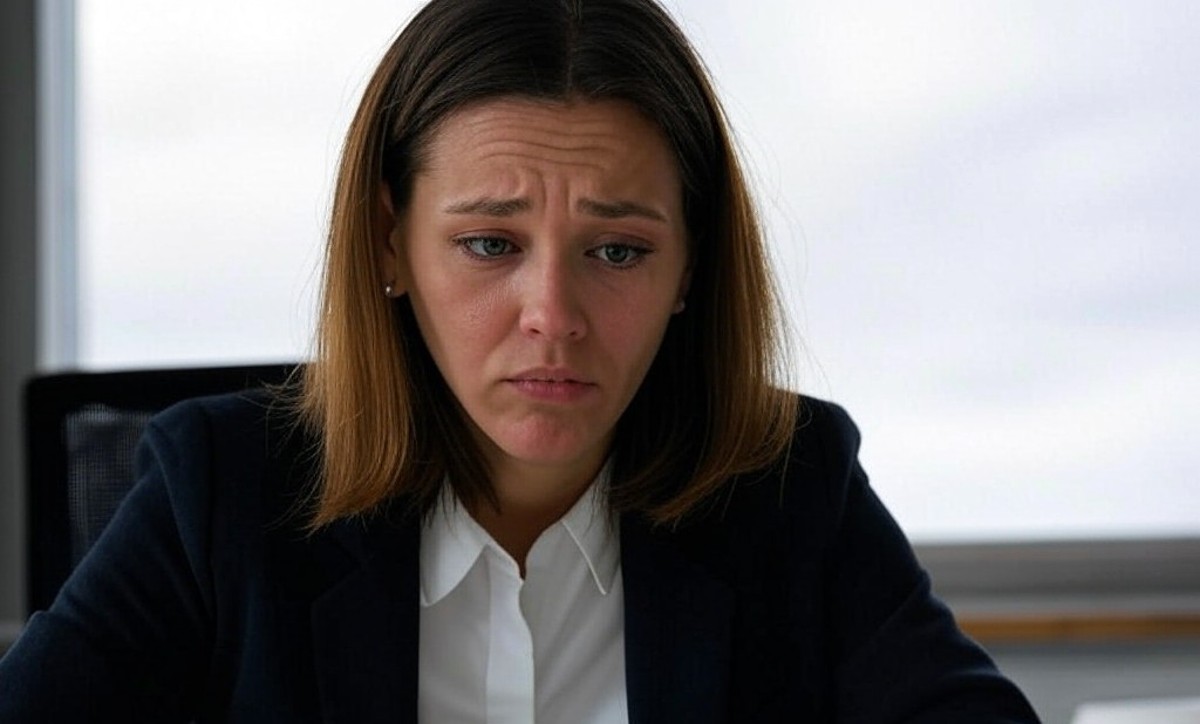We ask you, urgently: don’t scroll past this
Dear readers, Catholic Online was de-platformed by Shopify for our pro-life beliefs. They shut down our Catholic Online, Catholic Online School, Prayer Candles, and Catholic Online Learning Resources—essential faith tools serving over 1.4 million students and millions of families worldwide. Our founders, now in their 70's, just gave their entire life savings to protect this mission. But fewer than 2% of readers donate. If everyone gave just $5, the cost of a coffee, we could rebuild stronger and keep Catholic education free for all. Stand with us in faith. Thank you.Help Now >
Liturgy: Eucharistic Prayer for the Celebrant(s) Alone?
FREE Catholic Classes
And More on Lectors at Mass
ROME, JULY 8, 2004 (Zenit) - Answered by Father Edward McNamara, professor of liturgy at the Regina Apostolorum Pontifical University.
Q: In an earlier reply you mentioned that only the priest should say or sing the final doxology of the Eucharistic Prayer. This leads to a further question -- one perhaps not so much of liturgy in the narrow sense as of theology of the sacraments: Why has the Eucharistic Prayer always been reserved to the celebrant/concelebrants? It is worded in first person plural, and so it might seem appropriate for everyone to join in, as in the Credo? -- G.G., Emmitsburg, Maryland
A: From the historical perspective, the fact that this prayer has always been reserved to the priest is confirmed by solid evidence and so it appears to be a constant tradition of the Church.
There is some fragmentary evidence form earliest times but the clearest witness to this practice is St. Justin Martyr who around the year 150 wrote a description of the Mass in which the "president of the assembly" is described as making a lengthy prayer of thanksgiving ("Eucharist" in Greek) over the gifts of bread and wine.
Although the prayer is not yet a fixed text it is clear that only the "president" says it while the people say "Amen" at the end.
To attempt to explain the motives for this reservation I will begin by using another ancient text: the Anaphora of St. Hippolytus of Rome, composed around 220.
This is the earliest known written text for a Eucharistic Prayer and forms the basis for the present Roman Missal's Second Eucharistic Prayer.
The final doxology of this prayer has a variation, not incorporated in the modern text, but which can enlighten us. It says: "Through ... Jesus Christ, through whom be to you (the Father) glory and honor, with the Holy Spirit in the holy Church both now and forever and ever. Amen."
The incision which interests us is the expression "in the holy Church." This expression shows that the honor and glory offered to God through Christ and with the Holy Spirit can only be fully achieved in the Church.
This ecclesial dimension helps us grasp the reason why the Eucharistic Prayer is reserved to the priest.
The celebrant, in saying the Eucharistic Prayer, is acting at the same time in the person of the Church and in the person of Christ.
In acting in the person of the Church he does not simply represent the actual assembly, but the entire Church.
In acting in the person of Christ the priest makes it possible for the present assembly to exercise the common priesthood of the faithful and thus to unite themselves in heart and mind to Christ, as he offers his perfect sacrifice to the Father and who allows us to share in this sacrifice.
This common priesthood of the faithful is a true priesthood, and no mere metaphor. This is why the priest says "Pray, brethren, that our sacrifice (literally, "my sacrifice and yours" -- "meum ac vestrum") be acceptable to God ..."
Yet this priesthood cannot be genuinely exercised except in communion with the ministerial priesthood acting in the person of Christ and the Church. And indeed, one of the primary purposes of the ministerial priesthood is to facilitate the exercise of the common priesthood.
Without this communion the liturgy ceases, in a way, to be an act of the Church, for the concrete assembly is a manifestation of the Church, but is not the Church itself.
Thus the priest, in saying the Eucharistic Prayer alone, but in always using the first person plural, expresses this double aspect of acting in the person of Christ and of the Church. Through the priest's acting in the person of Christ, in a way Christ himself acts in the person of the Church in saying the Eucharistic Prayer.
In other words, Christ himself, as head of his body, the Church, says the Eucharistic Prayer, and says it in first person plural because while, on the one hand, only he can offer the Eucharist, he associates his whole body -- all the faithful -- with him in doing so.
Another consequence of this communion in the whole Church is that we are all engaged in every Mass said anywhere.
This can be seen in some elements of the prayer itself. For example, the intercessions of the first two Eucharistic Prayers contain the expression "una cum" -- "together with N. our Pope and N. our Bishop" (although the same Latin expression is translated differently in the two prayers).
This "together with" is not just a praying-for but a praying-with by which we are united through the celebrating priest to the bishop and through him to the Pope and the universal Church.
From these theological reflections, we can see that if the particular assembly were to join in saying the Eucharistic Prayer it would obscure the beauty of the Eucharistic mystery.
In the first place, it would obscure the reality of ecclesial communion by reducing the prayer to an act of those who happen to be present and not an act of the whole Church. The Church not only extends beyond all political frontiers but breaks the bonds of space and time so as to enter into the realm of the communion of saints.
Second, it would cast a shadow over the reality that Christ himself is drawing us into his prayer of self-offering to the Father. This allows us to exercise the baptismal priesthood that is itself his gift to us and through which we receive the capacity to share in the mystery of his passion, death and resurrection.
Finally, the common recitation might also bring us to forget that since both the common priesthood and its exercise is a gift of grace. We are not equal partners with Christ but beneficiaries of his love.
These are not the only reasons, and the theme merits more than one treatises. My only hope is that I have not committed a sin of presumption in trying to do justice to such a mystery, not only by treating it so briefly, but in trying to explain it in the first place.
* * *
Follow-up: Should Lectors Sit in the Pews?
In line with our June 22 column, several readers asked for other clarifications regarding lectors.
One reader asked about the use of non-Catholic or even non-Christian lectors. We dealt with this point in an earlier reply (Dec. 2).
Others asked if it is appropriate for children, or for those who have not received confirmation, to act as readers.
In weekday Masses specifically celebrated for young children using the special lectionary and missal prepared for this purpose, children may be assigned the task of reader (see Nos. 24 and 47 of the Directory for Masses with Children).
In other Masses, however, especially on a Sunday, the introduction to the lectionary (No. 52) says that when there are no instituted lectors, "Proper measures must therefore be taken to ensure that there are certain suitable laypeople who have been trained to carry out this ministry. Whenever there is more than one reading, it is better to assign the readings to different readers, if available."
This would imply that in general these other lay readers should be adults, although an articulate adolescent could probably also be assigned.
It is important to choose the readers well, out of respect for the God's Word and the dignity of the celebration, but also out of respect for the assembly so that the clarity of diction assists them in understanding and embracing the divine message.
Confirmation is not strictly demanded in order to serve as a supplementary reader. But it is required for an instituted lector.
Still, it is good to choose readers from those who have completed Christian initiation through the sacraments of confirmation and Eucharist.
Contact
Catholic Online
https://www.catholic.org
CA, US
Catholic Online - Publisher, 661 869-1000
info@yourcatholicvoice.org
Keywords
Liturgy, Mass, Celebrant, Lectors, Priests
More Catholic PRWire
Showing 1 - 50 of 4,716
A Recession Antidote
Randy Hain
Monaco & The Vatican: Monaco's Grace Kelly Exhibit to Rome--A Review of Monegasque-Holy See Diplomatic History
Dna. Maria St. Catherine Sharpe, t.o.s.m., T.O.SS.T.
The Why of Jesus' Death: A Pauline Perspective
Jerom Paul
A Royal Betrayal: Catholic Monaco Liberalizes Abortion
Dna. Maria St.Catherine De Grace Sharpe, t.o.s.m., T.O.SS.T.
Embrace every moment as sacred time
Mary Regina Morrell
My Dad
JoMarie Grinkiewicz
Letting go is simple wisdom with divine potential
Mary Regina Morrell
Father Lombardi's Address on Catholic Media
Catholic Online
Pope's Words to Pontifical Latin American College
Catholic Online
Prelate: Genetics Needs a Conscience
Catholic Online
State Aid for Catholic Schools: Help or Hindrance?
Catholic Online
Scorsese Planning Movie on Japanese Martyrs
Catholic Online
2 Nuns Kidnapped in Kenya Set Free
Catholic Online
Holy See-Israel Negotiation Moves Forward
Catholic Online
Franchising to Evangelize
Catholic Online
Catholics Decry Anti-Christianity in Israel
Catholic Online
Pope and Gordon Brown Meet About Development Aid
Catholic Online
Pontiff Backs Latin America's Continental Mission
Catholic Online
Cardinal Warns Against Anti-Catholic Education
Catholic Online
Full Circle
Robert Gieb
Three words to a deeper faith
Paul Sposite
Relections for Lent 2009
chris anthony
Wisdom lies beyond the surface of life
Mary Regina Morrell
World Food Program Director on Lent
Catholic Online
Moral Clarity
DAN SHEA
Pope's Lenten Message for 2009
Catholic Online
A Prayer for Monaco: Remembering the Faith Legacy of Prince Rainier III & Princess Grace and Contemplating the Moral Challenges of Prince Albert II
Dna. Maria St. Catherine Sharpe
Keeping a Lid on Permissiveness
Sally Connolly
Glimpse of Me
Sarah Reinhard
The 3 stages of life
Michele Szekely
Sex and the Married Woman
Cheryl Dickow
A Catholic Woman Returns to the Church
Cheryl Dickow
Modernity & Morality
Dan Shea
Just a Minute
Sarah Reinhard
Catholic identity ... triumphant reemergence!
Hugh McNichol
Edging God Out
Paul Sposite
Burying a St. Joseph Statue
Cheryl Dickow
George Bush Speaks on Papal Visit
Catholic Online
Sometimes moving forward means moving the canoe
Mary Regina Morrell
Action Changes Things: Teaching our Kids about Community Service
Lisa Hendey
Easter... A Way of Life
Paul Spoisite
Papal initiative...peace and harmony!
Hugh McNichol
Proclaim the mysteries of the Resurrection!
Hugh McNichol
Jerusalem Patriarch's Easter Message
Catholic Online
Good Friday Sermon of Father Cantalamessa
Catholic Online
Papal Address at the End of the Way of the Cross
Catholic Online
Cardinal Zen's Meditations for Via Crucis
Catholic Online
Interview With Vatican Aide on Jewish-Catholic Relations
Catholic Online
Pope Benedict XVI On the Easter Triduum
Catholic Online
Holy Saturday...anticipation!
Hugh McNichol
Join the Movement
When you sign up below, you don't just join an email list - you're joining an entire movement for Free world class Catholic education.
-

-
Mysteries of the Rosary
-
St. Faustina Kowalska
-
Litany of the Blessed Virgin Mary
-
Saint of the Day for Wednesday, Oct 4th, 2023
-
Popular Saints
-
St. Francis of Assisi
-
Bible
-
Female / Women Saints
-
7 Morning Prayers you need to get your day started with God
-
Litany of the Blessed Virgin Mary
Introducing "Journey with the Messiah" - A Revolutionary Way to Experience the Bible
-

Catholic Response to Devastating Los Angeles Wildfires
-

Federal Court Blocks Biden Administration's Gender Identity Rule
-
A Future for Life: Introducing the Winners of the Priests for Life Pro-Life Essay Contest
-
Reflections on Pope Francis' 2025 World Day of Peace message
Daily Catholic
 Daily Readings for Friday, January 10, 2025
Daily Readings for Friday, January 10, 2025 St. William of Bourges: Saint of the Day for Friday, January 10, 2025
St. William of Bourges: Saint of the Day for Friday, January 10, 2025 Prayer for a Blessing on the New Year: Prayer of the Day for Tuesday, December 31, 2024
Prayer for a Blessing on the New Year: Prayer of the Day for Tuesday, December 31, 2024- Daily Readings for Thursday, January 09, 2025
- St. Adrian, Abbot: Saint of the Day for Thursday, January 09, 2025
- St. Theresa of the Child Jesus: Prayer of the Day for Monday, December 30, 2024
![]()
Copyright 2024 Catholic Online. All materials contained on this site, whether written, audible or visual are the exclusive property of Catholic Online and are protected under U.S. and International copyright laws, © Copyright 2024 Catholic Online. Any unauthorized use, without prior written consent of Catholic Online is strictly forbidden and prohibited.
Catholic Online is a Project of Your Catholic Voice Foundation, a Not-for-Profit Corporation. Your Catholic Voice Foundation has been granted a recognition of tax exemption under Section 501(c)(3) of the Internal Revenue Code. Federal Tax Identification Number: 81-0596847. Your gift is tax-deductible as allowed by law.










 Daily Readings for Friday, January 10, 2025
Daily Readings for Friday, January 10, 2025 St. William of Bourges: Saint of the Day for Friday, January 10, 2025
St. William of Bourges: Saint of the Day for Friday, January 10, 2025 Prayer for a Blessing on the New Year: Prayer of the Day for Tuesday, December 31, 2024
Prayer for a Blessing on the New Year: Prayer of the Day for Tuesday, December 31, 2024

